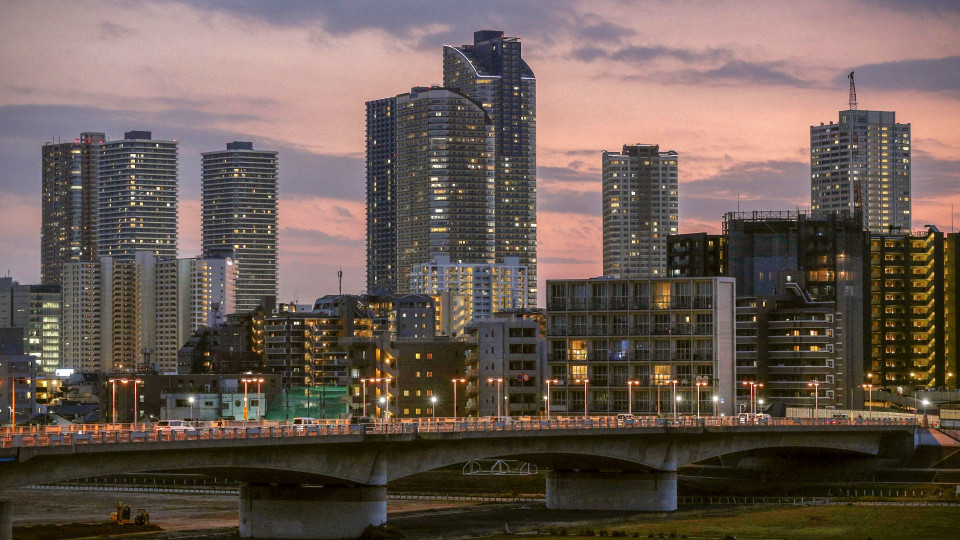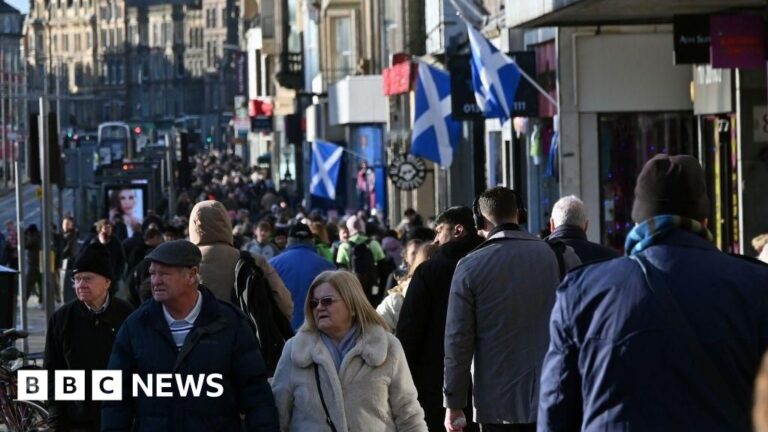
Japan inflation accelerates in Nov. on reduced energy subsidies
- Inflation analysis: Prices rising faster means higher borrowing costs for longer amid recession fears
- Federal Reserve’s preferred inflation gauge shows price pressures eased last month
- Donald Trump Gets Bad News About His Tariff Plan From Americans in New Poll
- Trump trade aide Peter Navarro denies tariff plans will spur inflation
- ‘1 cup coffee for 25,000 pounds’: Influencer’s video reveals Syria’s shocking inflation crisis | Trending
Japan’s core consumer prices in November rose 2.7 percent from a year earlier, with the pace of increase expanding for the first time in three months, amid reduced government subsidies for utility bills and higher rice prices, the internal affairs ministry said Friday.
Bạn đang xem: Japan inflation accelerates in Nov. on reduced energy subsidies
The climb in the nationwide core consumer price index, excluding volatile fresh food, followed a 2.3 percent gain in October and a 2.4 percent rise in September. The inflation rate has remained at or above the Bank of Japan’s 2 percent target since April 2022.
Core-core CPI, which shows underlying price trends by stripping away both energy and fresh food, was up 2.4 percent, accelerating from a 2.3 percent increase the previous month, the Ministry of Internal Affairs and Communications said.
But Masahiro Ichikawa, chief market strategist at Sumitomo Mitsui DS Asset Management Co., said core CPI growth in November is unlikely to “prompt the BOJ to change its view on the economy” as it was primarily attributed to the reduction in energy subsidies.
The Japanese central bank decided Thursday to keep its policy rate unchanged at around 0.25 percent, saying it wants to analyze more wages data. Ichikawa believes the next rate hike could come as early as January.
Xem thêm : Federal Reserve is likely to slow its rate cuts with inflation pressures still elevated
As government subsidies to alleviate the financial burden on households were reduced, energy prices in November climbed 6.0 percent, up from a 2.3 percent gain in October. The price of electricity soared 9.9 percent while that of city gas grew 6.4 percent.
File photo shows rice sold in bags at a supermarket in Koshigaya, Saitama Prefecture, on Oct. 18, 2024. (Kyodo)
Rice prices, meanwhile, jumped 63.6 percent, the biggest increase since comparable data became available in 1971, as supplies reduced after an unusually hot summer last year, with farmers passing on higher production costs to consumers.
In addition, prices of foreign-sourced chocolate and coffee beans rose 29.2 percent and 24.9 percent, respectively, in November, with rising material costs and unfavorable weather leading to smaller harvests, the ministry said.
Higher prices for such products contributed to overall food prices rising by 4.2 percent, up from a 3.8 percent climb in October. The soaring rice prices also led to rice balls and sushi becoming more expensive, according to the ministry.
Among other major items, household durable goods grew 4.1 percent, decelerating from 6.0 percent in October.
Xem thêm : Eurozone Inflation Revised Down Slightly In November
Service prices, one of the indicators the BOJ closely monitors when deciding its monetary policy as it often reflects wage increases, rose 1.5 percent, unchanged from the previous month.
Related coverage:
BOJ keeps rates on hold amid caution over wages, Trump policies
Japan big manufacturers’ confidence improves as auto output recovers: BOJ
Japan July-Sept. GDP growth revised up to 1.2% on private investment
Nguồn: https://estateplanning.baby
Danh mục: News




